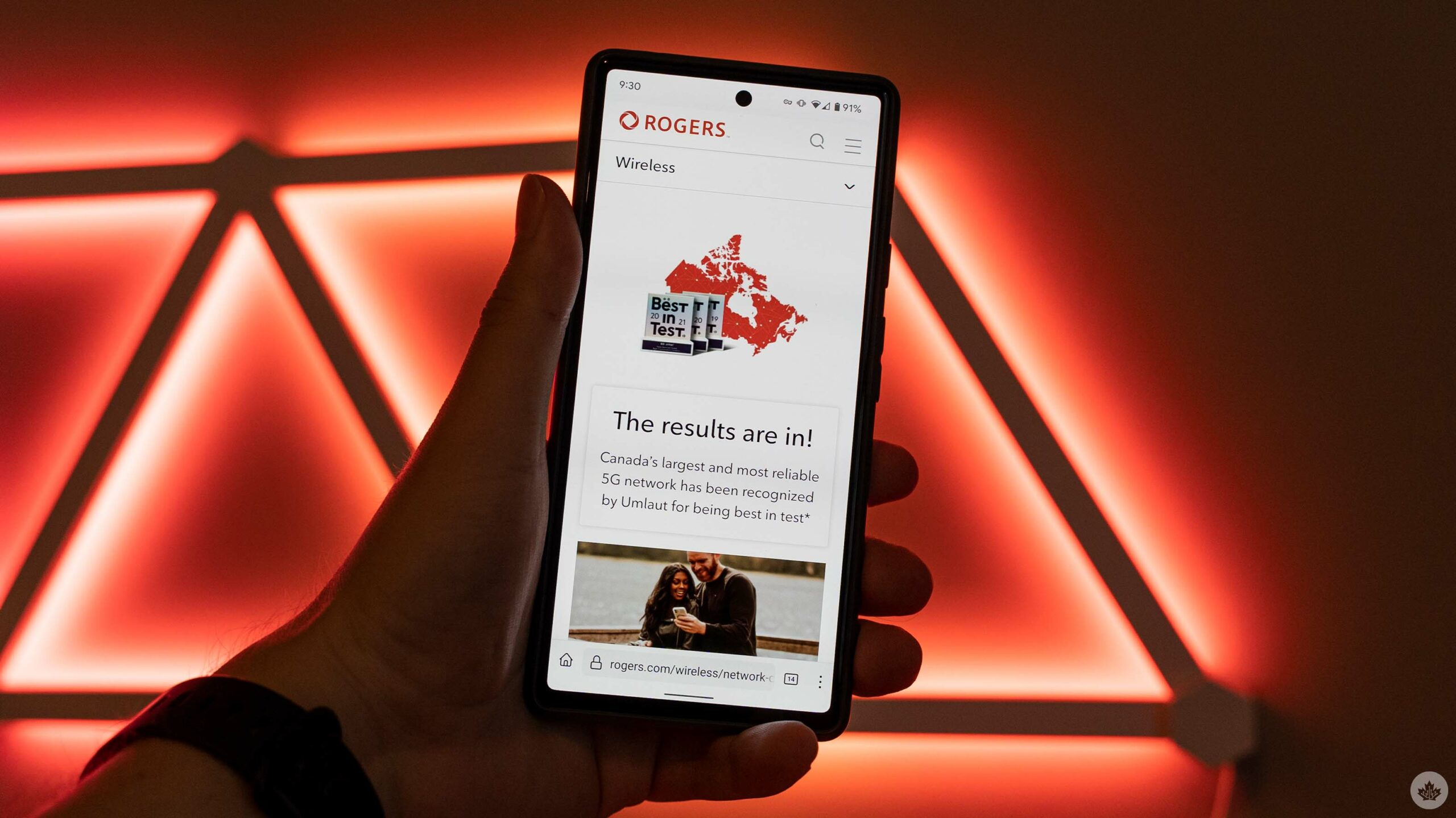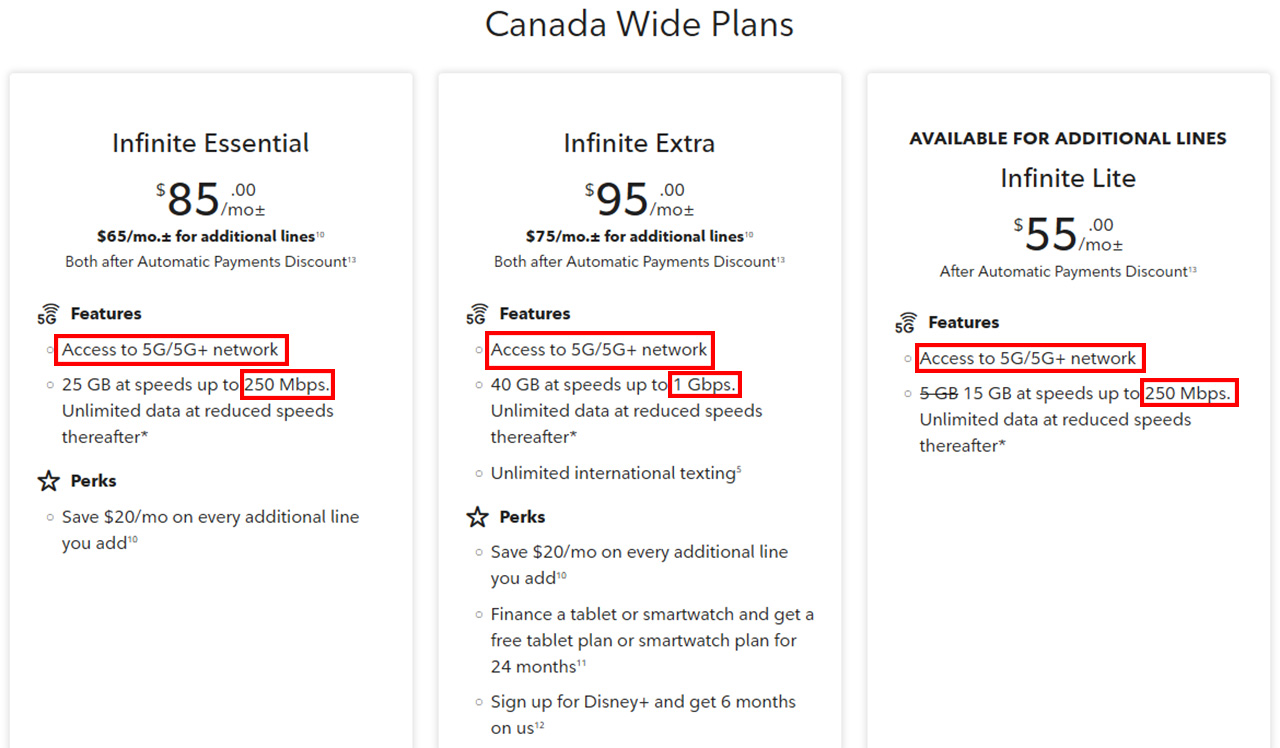
Toronto-based national carrier Rogers made some updates to its ‘Infinite’ plans, adding new 5G+ branding and speed caps.
The Rogers website now lists the various ‘Infinite‘ plans as having “access to [the] 5G/5G+ network” (spotted by iPhone in Canada). Update 2022/10/26 at 3:47pm ET: A Rogers webpage with details about the company’s 5G network notes that 5G+ refers to the company’s 3,500MHz spectrum, which it started rolling out in June:
“5G+ (or 3500 MHz spectrum) is the latest network technology that will improve the existing Rogers 5G network. 5G+ is expected to deliver better speed, capacity and coverage, and to offer up to 50% more network capacity.”
Moreover, the Rogers page says that customers with an Infinite plan, 5G device that supports the n78 band, a 5G SIM card, and who live in an area with 5G+ coverage will be able to connect automatically to 5G+, “no action is required.”
A Rogers spokesperson told MobileSyrup that regardless if a customer’s phone connects to 5G or 5G+, the phone will show 5G in the status bar. Moreover, the spokesperson said that the 5G+ branding “is consistent with terminology used by other wireless providers.”
Both Telus and Bell have added similar branding. Bell announced its 3,500MHz spectrum rollout under the 5G+ branding, while Telus has used the ‘+’ sign to differentiate between tiers of its ‘Unlimited 5G’ plans. In Telus’ case, the 5G+ branding doesn’t appear connected to 3,500MHz spectrum.
Rogers is also jumping on the speed cap bandwagon, locking its $85/mo ‘Infinite Essential’ 25GB plan to a maximum speed of 250Mbps, and its other Infinite plans to a maximum speed of 1Gbps. The ‘Infinite Lite’ plan for additional lines is also capped at 250Mbps.
Frankly, it’s surprising Rogers waited so long to do this. Telus added speed caps back in February, and Bell did the same in April. Even Rogers’ own flanker brand, Fido, beat it to the punch with speed caps in June.
MobileSyrup also asked Rogers why it made the switch to capping mobile speeds but the carrier did not provide an answer.
Speed caps are a frustrating new restriction on mobile customers
Speed caps mark a fairly significant shift for mobile data, which for years in Canada has been offered with restrictions on the amount of data customers could use each month, not how fast it was. Instead, data was served at effectively the fastest speed available based on network conditions and other factors.
Now, that’s flipping — at least, it is with the Big Three who offer “unlimited” plans. Rogers, Bell, and Telus all have plans that let people use as much data as they want, although the carriers throttle speed at a certain point. With the addition of speed caps, the carriers now restrict data speeds at all times and the restrictions still become more severe after a certain amount of use. That squeezes customers at both ends, and I don’t see mobile data moving entirely to a speed-based system like home internet, where most plans offer unlimited use with different tiers of speed.
The change is even more frustrating at the flanker brands, which still have hard caps on monthly usage as well as lower maximum speeds.
Sure, 1Gbps is likely more than fast enough for your mobile internet needs. Heck, 250Mbps is probably overkill for most people too. But that doesn’t change the fact that the Big Three all now offer plans with worse value than before, for the same price as before.
Update 2022/10/27 at 9:06am ET: Added additional details from Rogers about the 5G+ branding.
MobileSyrup may earn a commission from purchases made via our links, which helps fund the journalism we provide free on our website. These links do not influence our editorial content. Support us here.



